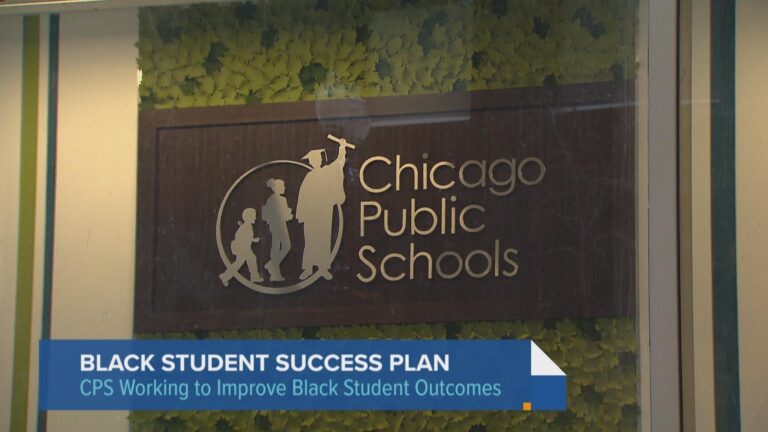Federal Review of Chicago Public Schools’ Black Student Success Initiative
The U.S. Department of Education has commenced a extensive review of Chicago Public Schools (CPS) concerning its Black Student Success Plan. This investigation seeks to verify whether the district’s strategy aligns with federal civil rights statutes, especially scrutinizing if the program unintentionally fosters racial segregation or discrimination. CPS launched this initiative to confront persistent achievement disparities and enhance support systems for Black students throughout the district’s schools.
Central issues under examination include:
- Fairness in resource distribution: Are educational resources and opportunities equitably accessible to students of all racial groups?
- Inclusivity within the curriculum: Does the plan promote a welcoming environment while complying with nondiscrimination laws?
- Legal compliance: Are any components potentially in violation of Title VI of the Civil Rights Act?
| Focus Area | Expected Outcome |
|---|---|
| Resource Allocation | Guarantees equitable funding and educational materials |
| Curriculum Assessment | Ensures cultural relevance balanced with inclusivity |
| Student Performance | Tracks improvements in academic achievement |
Implementation Challenges and Equity Concerns
While the Black Student Success Plan is rooted in positive intentions,critics highlight inconsistencies in its execution across various schools,sparking debate about whether the plan’s outcomes truly reflect its goals. There is apprehension that schools in economically disadvantaged neighborhoods may not be receiving sufficient resources, potentially widening existing educational divides. Parents and educators have expressed dissatisfaction with the lack of openness and inadequate support mechanisms, suggesting that the rollout might unintentionally deepen inequities within CPS.
Experts identify several critical obstacles that must be addressed to promote fairness and sustainable progress:
- Unequal resource distribution: Disparities in access to experienced teachers and extracurricular activities.
- Insufficient data transparency: Gaps in reporting on Black student achievement metrics.
- Limited community involvement: Inadequate engagement of families and local leaders in shaping policies.
| Primary Concern | Effect on Equity |
|---|---|
| Funding Inequities | Concentration of resources in select schools, neglecting others |
| Accountability Deficits | Absence of clear performance benchmarks impedes progress evaluation |
| Stakeholder Engagement | Low participation undermines community trust and support |
Current State of Black Student Achievement and Funding in CPS
Recent data highlight ongoing disparities in academic success and funding that disproportionately affect Black students within Chicago Public Schools. Despite targeted efforts, the latest academic year’s statistics reveal significant gaps in graduation rates, participation in advanced coursework, and per-student funding. These disparities have intensified federal scrutiny of CPS’s Black Student Success Plan, focusing on whether the district has effectively allocated resources and support services to improve outcomes.
- Graduation Rate: Black students graduate at 68%, trailing the district average of 82%.
- Advanced Coursework Enrollment: Only 23% of Black students are enrolled in Advanced Placement classes, compared to 37% district-wide.
- Funding Per Student: Schools with predominantly Black student populations receive roughly 15% less funding than those serving mostly white students.
| Indicator | Black Students | District Average |
|---|---|---|
| Graduation Rate | 68% | 82% |
| AP Course Enrollment | 23% | 37% |
| Per-Pupil Funding | $9,500 | $11,200 |
These figures underscore systemic challenges within CPS, including uneven distribution of qualified educators and limited access to counseling and enrichment programs. Although policy reforms and targeted investments have been introduced,progress remains inconsistent. The federal investigation may prompt CPS to implement stricter accountability frameworks and enhance transparency to ensure equitable educational opportunities. Advocates continue to call for sustained efforts that address the specific needs of Black students across the district.
Strategies to Strengthen Accountability and Boost Student Success
Improving transparency and leveraging data-driven methods are essential for reinforcing accountability within Chicago Public Schools. Setting explicit performance goals and routinely publishing comprehensive progress reports will clarify expectations and empower parents, educators, and policymakers with actionable insights. This approach fosters trust and supports continuous refinement of initiatives aimed at enhancing Black student achievement.
Additionally,prioritizing targeted support mechanisms is critical to closing achievement gaps. Schools should integrate culturally responsive teaching practices and invest in professional development that equips educators to meet the unique challenges faced by Black students. Strengthening community partnerships through mentorship programs and expanded after-school resources can further motivate and sustain student engagement.
- Consistent public reporting on key success indicators
- Mandatory cultural competency training for all educators
- Expanded tutoring and mentorship opportunities
- Collaborations with local organizations to support families
| Initiative | Goal | Implementation Timeline |
|---|---|---|
| Clear Progress Reporting | Enhance Accountability | Quarterly |
| Cultural Competency Workshops | Improve Educator Effectiveness | Biannual |
| Mentorship Programs | Increase Student Retention and Success | Ongoing |
| Community Engagement Partnerships | Expand Support Networks | Annual Review |
Looking Ahead: The Future of Equity in Chicago Education
As the U.S.Department of Education’s investigation into Chicago Public Schools’ Black Student Success Plan progresses, the findings could set important precedents for equity-focused education policies nationwide. Educators, families, and policymakers are closely monitoring the situation, recognizing the complex challenges involved in addressing systemic disparities. Ongoing coverage will track developments and provide insights into how Chicago’s experience may influence broader efforts to create fair and inclusive educational environments for all students.





